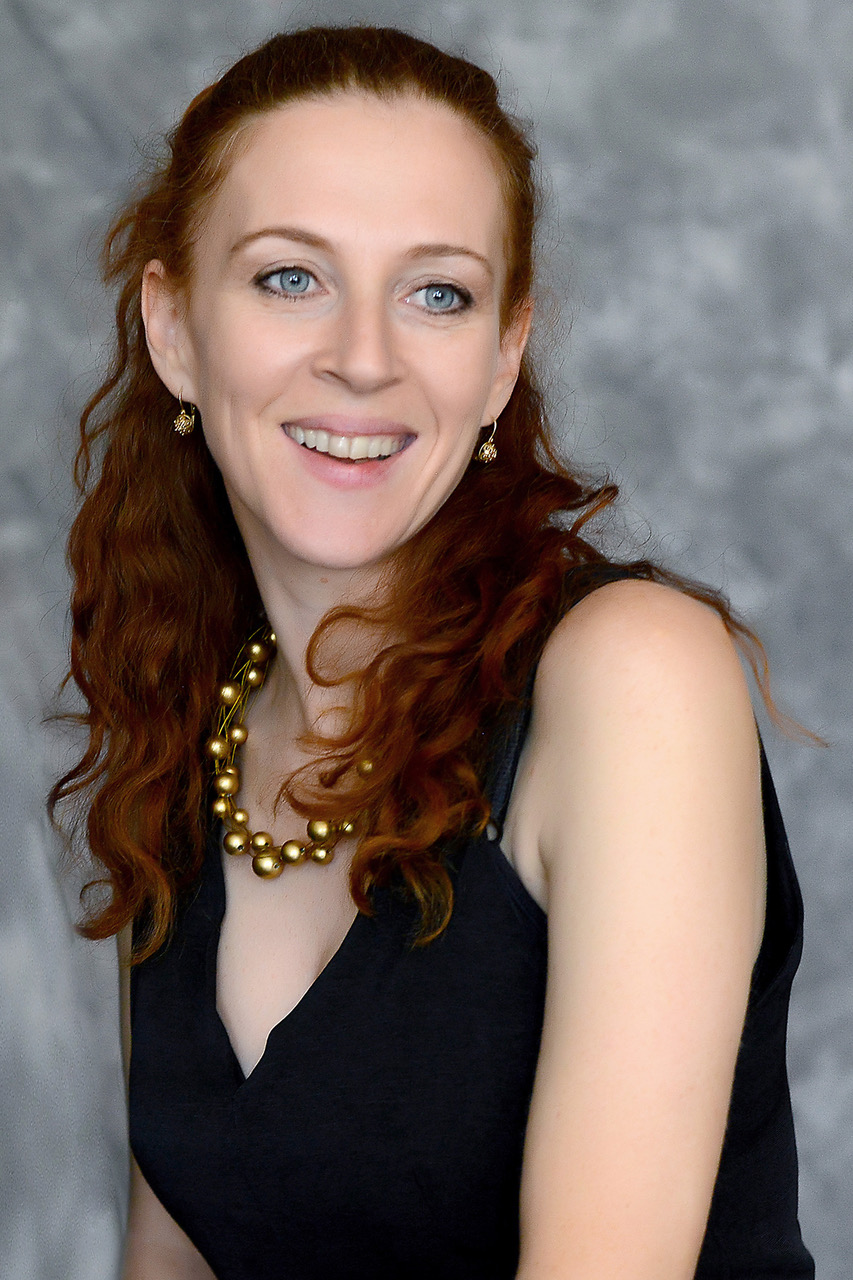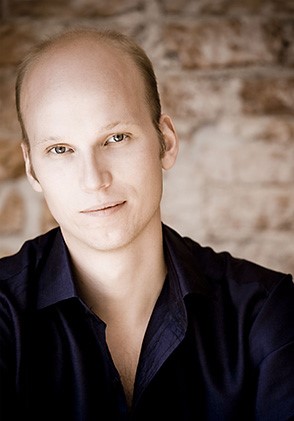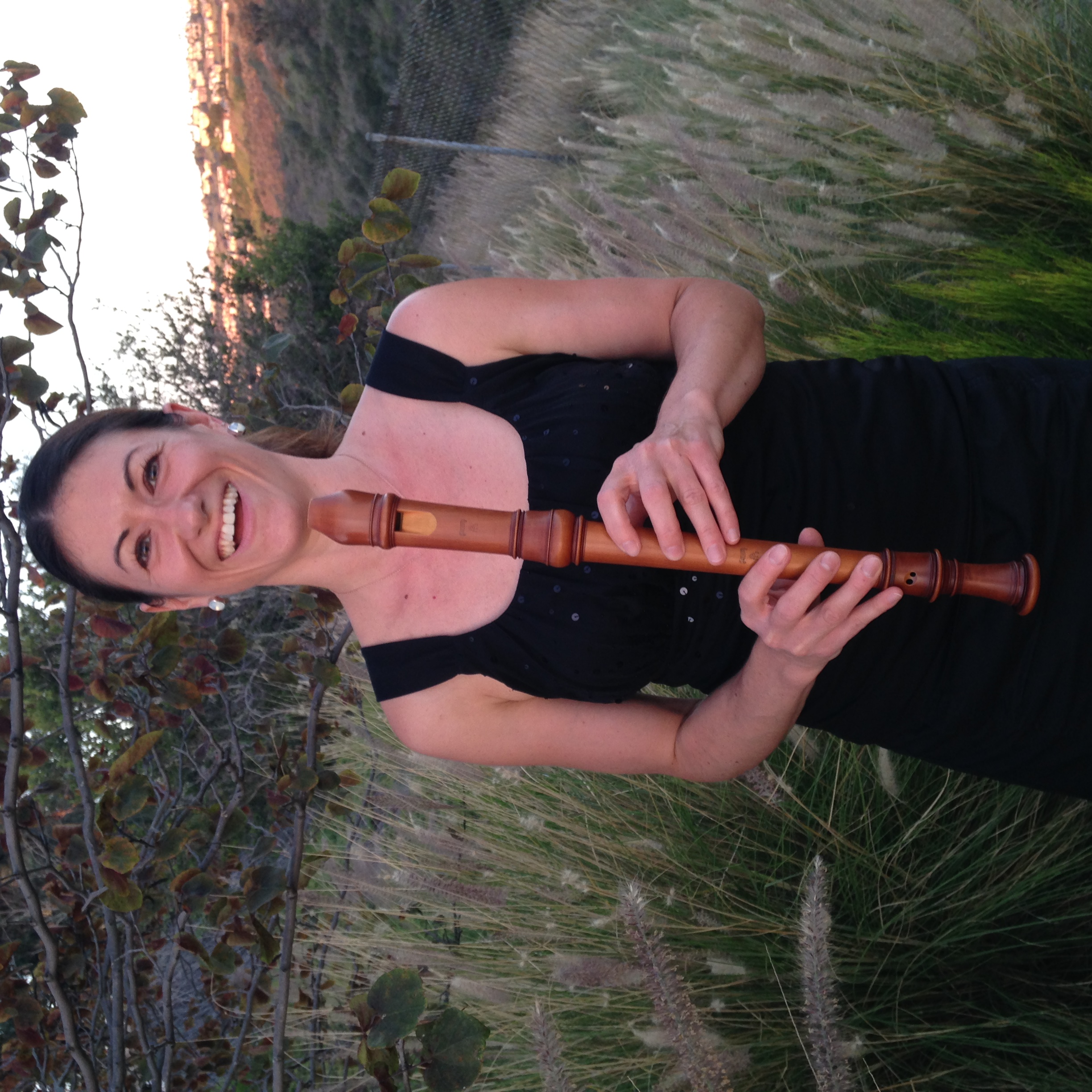The four cantatas presented--BWV 12, 106 (which includes a pair of recorders), 131 and 150--were written early iy in Bach's career, yet are in no way juvenilia. They represent the early flowering of an already-proficient musical genius.
THURSDAY, NOVEMBER 2 7:00 PM
St. Mark's Lutheran Church
1111 O'Farrell Street, San Francisco
Come and pay what you can! https://www.sfems.org/tickets
Ludwig Senfl (ca. 1490 - 1543) was one of the most prolific and influential composers in the German-speaking world at the time of the Reformation. Affiliated with the imperial court of Maximilian I, and later the ducal court of Wilhem IV of Bavaria, his compositional output encompassed all genres of his time. Most of his extant lieder are secular and make use of the German language.
In this class, you will experience the wide range of Senfl's lied output, from homophonic settings via more contrapuntal tenor-lied compositions to complex quodlibets combining various well known tunes. The class's carmina compositions, including a fantasia and a lament, and various songs without words. They round up this short introduction and exploration of Senfl's lieder. The music of the class will be presented in adaptations for recorder consort. All instrumentalists and singers are welcome. Open to: all instrumentalists and singers. Pitch: A = 440 Hz
Tickets are $25 in person or $10 virtual.
 We're excited to have Daphna Mor with us to lead our November workshop to share a new and exciting music experience.
We're excited to have Daphna Mor with us to lead our November workshop to share a new and exciting music experience.
Looking East: Music from the Middle East and the Balkans - Arabic, Ottoman, Sephardic, Armenian and Balkan songs, prayers and dances adapted for the recorder.
Add structure to your practice routine! After doing the warm ups together, you will be inspired to practice on your own.
Each half-hour class will feature 15 minutes of breathing, tone, tonguing, or coordination warm ups for all levels; as well as 15 minutes of advanced technique taken from excerpts in baroque repertoire.
Cost: 5 Classes for $100
Contact Sarah at cantornote@icloud.com to register.
Add structure to your practice routine! After doing the warm ups together, you will be inspired to practice on your own.
Each half-hour class will feature 15 minutes of breathing, tone, tonguing, or coordination warm ups for all levels; as well as 15 minutes of advanced technique taken from excerpts in baroque repertoire.
Cost: 5 Classes for $100
Contact Sarah at cantornote@icloud.com to register.
The Pensacola Early Music Festival will take place November 10-12, 2023 at St. Christopher’s Episcopal Church.
This is a weekend gathering of regional musicians who will join the Pensacola Early Music Consort, a local music group specializing in early-period instruments and music, to prepare a concert to show off the recorder orchestra and the Renaissance Band.
Pensacola is open to new sounds and over the past few years, the Pensacola Early Music Consort has worked to present early instruments in concert to showcase music from the Medieval, Renaissance, and Baroque periods.
We have also included works from the Celtic tradition and works of modern composers for early instruments. We will rehearse on Friday evening, and Saturday morning through early afternoon, and then give a public concert on Sunday afternoon at 3:00 p.m. at St. Christopher’s Church on 12th Avenue in Pensacola.
Contact Charles Tucker if interested in participating at tuckercharles48129@gmail.com or at 850-525-8256
Event Details
- When: Nov. 10-12, 2023
- Time: Friday evening, Saturday morning to early afternoon, and Sunday at 3:00 p.m.
- Where: St Christopher’s Episcopal Church
 Saturday 11th November 2023, 6.00pm
Saturday 11th November 2023, 6.00pmSt. Michael & All Angels, Pond Road, Blackheath SE3 9JL
Tickets will go on sale from 1st August
Erik Bosgraaf is generally considered to be one of the world’s leading recorder players, and he is definitely the most adventurous. He improvises, plays jazz, utilizes electronics and likes working with people in other areas of artistic endeavour such as cinematography (Werner Herzog, Paul and Menno de Nooijer). His repertoire extends from Vivaldi’s Four Seasons to tomorrow’s music. Bosgraaf’s recording of Jacob van Eyck’s Der Fluyten Lust-hof set a new standard and led to his international breakthrough. Many other hits followed, mainly for the Brilliant Classics label. Around 100 pieces have been composed for him, among which are 12 concertos. In 2011, Pierre Boulez gave him permission to adapt his clarinet composition Dialogue de l’ombre double for the recorder. The world premiere of this new version took place in the sold-out main auditorium of the Amsterdam Concertgebouw; the CD was recorded in 2015. Arvo Pärt allowed him to perform a concertante recorder version of Fratres, which had its world premiere in the composer’s hometown of Tallinn.
Add structure to your practice routine! After doing the warm ups together, you will be inspired to practice on your own.
Each half-hour class will feature 15 minutes of breathing, tone, tonguing, or coordination warm ups for all levels; as well as 15 minutes of advanced technique taken from excerpts in baroque repertoire.
Cost: 5 Classes for $100
Contact Sarah at cantornote@icloud.com to register.
The Workshops will be on Tuesday, November 14, 7 PM, Central Time, Wednesday, November 15, 10 AM, Central Time, and Friday, November 17, 7 PM, Central Time.
Different tunes will be played at each session.
We will read, play, and discuss various survival skills for these charming pieces. A treble clef version of the sheet music for the tunes being played will be displayed on the screen during the workshop.
There is limited enrollment, and pre-registration is required. The cost for each workshop is $10.00. The cost of each optional book is $15.00 (includes shipping if ordered with workshop registration).
For more information, and to register:
https://www.greenblattandseay.com/workshops_irish.shtml
Review:
“While the arrangements are not complex, the interactions between the voices are interesting. Some are primarily homophonic, while others display more independence in the lines. Most rhythms are straightforward, though there are a few with little tricky bits. There is nothing, however, that requires advanced rhythmic skill and that cannot be mastered by practice.
The melodies are catchy. Slurs are indicated, which is useful. Metronome markings are given.
Well-suited to intermediate players, and some of the selections are easy enough for more advanced beginners. Because of the pleasing nature of the melodies and of the arrangements, more experienced players with an interest in folk music will also enjoy them. They would make for nice concert programming.”
- Beverly R. Lomer, Ph.D.,
American Recorder, Spring 2019
with Anne Timberlake
Get auto-magic, hassle-free registration for all six of my Wednesday Webinars in 2023-24 by purchasing a season pass. You’ll only have to register once, and you’ll save money off the single ticket price.
Past Topics:
8/30/23: Where Do I Breathe?!?!
10/4/23: Vibrant Vibrato
11/15/23: Mysterious Musicality
12/13/23 Recorder Messiah!
1/17/24: Alternative Fingerings
3/6/24: Hemiolas…and Why You Care!
Upcoming:
5/8/24: Intro to Memorization
Are you interested in trying to play from memory? In this one-hour, live Zoom webinar, we’ll talk about the essentials of memorization and how you can begin to practice this unique skill.
To purchase, visit my website and complete the purchase process. If you have questions or you prefer to pay offline, please contact me at anne@annetimberlake.com
The Workshops will be on Tuesday, November 14, 7 PM, Central Time, Wednesday, November 15, 10 AM, Central Time, and Friday, November 17, 7 PM, Central Time.
Different tunes will be played at each session.
We will read, play, and discuss various survival skills for these charming pieces. A treble clef version of the sheet music for the tunes being played will be displayed on the screen during the workshop.
There is limited enrollment, and pre-registration is required. The cost for each workshop is $10.00. The cost of each optional book is $15.00 (includes shipping if ordered with workshop registration).
For more information, and to register:
https://www.greenblattandseay.com/workshops_irish.shtml
Review:
“While the arrangements are not complex, the interactions between the voices are interesting. Some are primarily homophonic, while others display more independence in the lines. Most rhythms are straightforward, though there are a few with little tricky bits. There is nothing, however, that requires advanced rhythmic skill and that cannot be mastered by practice.
The melodies are catchy. Slurs are indicated, which is useful. Metronome markings are given.
Well-suited to intermediate players, and some of the selections are easy enough for more advanced beginners. Because of the pleasing nature of the melodies and of the arrangements, more experienced players with an interest in folk music will also enjoy them. They would make for nice concert programming.”
- Beverly R. Lomer, Ph.D.,
American Recorder, Spring 2019
Add structure to your practice routine! After doing the warm ups together, you will be inspired to practice on your own.
Each half-hour class will feature 15 minutes of breathing, tone, tonguing, or coordination warm ups for all levels; as well as 15 minutes of advanced technique taken from excerpts in baroque repertoire.
Cost: 5 Classes for $100
Contact Sarah at cantornote@icloud.com to register.
The Workshops will be on Tuesday, November 14, 7 PM, Central Time, Wednesday, November 15, 10 AM, Central Time, and Friday, November 17, 7 PM, Central Time.
Different tunes will be played at each session.
We will read, play, and discuss various survival skills for these charming pieces. A treble clef version of the sheet music for the tunes being played will be displayed on the screen during the workshop.
There is limited enrollment, and pre-registration is required. The cost for each workshop is $10.00. The cost of each optional book is $15.00 (includes shipping if ordered with workshop registration).
For more information, and to register:
https://www.greenblattandseay.com/workshops_irish.shtml
Review:
“While the arrangements are not complex, the interactions between the voices are interesting. Some are primarily homophonic, while others display more independence in the lines. Most rhythms are straightforward, though there are a few with little tricky bits. There is nothing, however, that requires advanced rhythmic skill and that cannot be mastered by practice.
The melodies are catchy. Slurs are indicated, which is useful. Metronome markings are given.
Well-suited to intermediate players, and some of the selections are easy enough for more advanced beginners. Because of the pleasing nature of the melodies and of the arrangements, more experienced players with an interest in folk music will also enjoy them. They would make for nice concert programming.”
- Beverly R. Lomer, Ph.D.,
American Recorder, Spring 2019
Cost: NAVRS Membership is $20 and each playing session is $15; membership is not required for your first meeting but there is a charge of $15.
Dancing through Time: Though not always in the same way, music and dance have been intricately connected throughout history. Back in the mists of time, music accompanied dancing, but very little of it survives as most of it was not written down. With the introduction of the printing press in the Renaissance, this all changed and dance music for both court and countryside circulated widely. Though these dances enjoyed a more formal and complex construction than in earlier centuries, this music was still intended to be danced to. A century or so later, in the Baroque era, dance music remained popular, but grew ever more sophisticated. The majority of these compositions were meant to evoke the dance rather than to accompany it, a trend that continues to the present day. During the playing meeting, we will trace these changing traditions across four centuries and enjoy playing a variety of dance-inspired compositions, including works by Morley, Bach, Fauré and Shostakovich.
For more information and to register, visit the NAVRS website.

Though not always in the same way, music and dance have been intricately connected throughout history. Back in the mists of time, music accompanied dancing, but very little of it survives as most of it was not written down. With the introduction of the printing press in the Renaissance, this all changed and dance music for both court and countryside circulated widely. Though these dances enjoyed a more formal and complex construction than in earlier centuries, this music was still intended to be danced to. A century or so later, in the Baroque era, dance music remained popular, but grew ever more sophisticated. The majority of these compositions were meant to evoke the dance rather than to accompany it, a trend that continues to the present day. During the playing meeting, we will trace these changing traditions across four centuries and enjoy playing a variety of dance-inspired compositions, including works by Morley, Bach, Fauré and Shostakovich.
Join us for a special and insightful online articulation class on Sunday, November 19th, led by not one, but two esteemed teachers: Michael Piraner and Lobke Sprenkeling! We’re thrilled to offer this unique joint class, combining two different perspectives on articulation to provide you with a comprehensive course.
Lobke has profoundly studied the relationship between airflow and tongue movement, addressing the issues of a slow or noisy tongue. On the other hand, Michael’s research delves into the connection between articulation and speaking. Our combined expertise in this practical class will equip you with a variety of tools and solutions that can be immediately applied to your playing. Additionally, we will provide guidance on incorporating different articulations into your musical pieces.
As an (optional) follow-up, we’ll be teaching a second online class on 🗓️ December 17th, focusing on Articulation and Rhetorics in Baroque music. This class takes a more analytical approach to Baroque pieces, exploring how rhetoric is integral to the art of storytelling within the music. We’ll discuss the structure of the pieces, the relationship between melody and harmony in storytelling, and how this relates to the articulations used. We will start with vocal music before moving on to pieces like Telemann’s Fantasia I, Philidor’s Recorder Sonata, and even journey back in time to Van Eyck’s variations.
Add structure to your practice routine! After doing the warm ups together, you will be inspired to practice on your own.
Each half-hour class will feature 15 minutes of breathing, tone, tonguing, or coordination warm ups for all levels; as well as 15 minutes of advanced technique taken from excerpts in baroque repertoire.
Cost: 5 Classes for $100
Contact Sarah at cantornote@icloud.com to register.
Add structure to your practice routine! After doing the warm ups together, you will be inspired to practice on your own.
Each half-hour class will feature 15 minutes of breathing, tone, tonguing, or coordination warm ups for all levels; as well as 15 minutes of advanced technique taken from excerpts in baroque repertoire.
Cost: 5 Classes for $100
Contact Sarah at cantornote@icloud.com to register.
Add structure to your practice routine! After doing the warm ups together, you will be inspired to practice on your own.
Each half-hour class will feature 15 minutes of breathing, tone, tonguing, or coordination warm ups for all levels; as well as 15 minutes of advanced technique taken from excerpts in baroque repertoire.
Cost: 5 Classes for $100
Contact Sarah at cantornote@icloud.com to register.
Add structure to your practice routine! After doing the warm ups together, you will be inspired to practice on your own.
Each half-hour class will feature 15 minutes of breathing, tone, tonguing, or coordination warm ups for all levels; as well as 15 minutes of advanced technique taken from excerpts in baroque repertoire.
Cost: 5 Classes for $100
Contact Sarah at cantornote@icloud.com to register.






